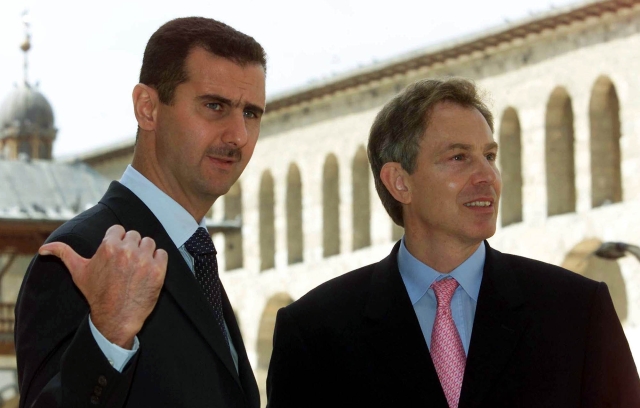A series of British documents, recently released, reveal how close Israel was to a peace agreement with Lebanon and Syria in the late 1990s, as well as Britain's role in trying to mediate between the parties. In the newspaper, Al-Sharq Al-Awsat, published in London, details were published about meetings held by the late Prime Minister of Lebanon, Rafic Hariri, with senior British officials in 1997 and 1999. From these meetings, details of negotiation meetings between Israel and Lebanon, and Syria are revealed.
According to the newspaper report, during a visit to Britain, Hariri informed his peer, British Prime Minister Tony Blair, that Lebanon and Israel held 11 negotiation meetings in Washington, but they did not materialize into an agreement. The reason, according to Hariri, is because of Israel's insistence on a series of conditions, including the insistence on disbanding Hezbollah.
London tried to mediate Lebanese-Israeli peace in the 1990's - report#Lebanon #Israel #Libano #MiddleEast #UnitedKingdom #ReinoUnido @netanyahu #Netanyahu @InstituteGC #RafiqHariri @aawsat_eng #Palestine #WestBank
— Agencia AJN (@AgenciaAJN) January 22, 2023
See more: https://t.co/LwKuiW79ro pic.twitter.com/BSErFJXP4M
According to the documents, Britain tried to play a role in the negotiations between Israel and Lebanon and Syria. Thus on July 17, 1997, British Prime Minister Tony Blair received his Lebanese counterpart, Rafic Hariri, for a meeting at his residence. Blair was then the new prime minister after leading his party to a landslide victory over the conservatives, while Hariri was a prime minister who focused his efforts on rebuilding Lebanon after the civil war. The meeting showed that Hariri clearly placed the responsibility for disrupting progress in the peace talks on the Prime Minister of Israel at the time, Benjamin Netanyahu, and claimed that his policies would only increase the influence of Hamas and the extremists.
The documents state that Hariri told Blair: "Netanyahu does not want to move forward. He does not want to withdraw from the West Bank and Gaza and is not willing to compromise in Jerusalem while settlement activity continues. All this only strengthens the extremists, but Netanyahu does not care." Since the 1948 War of Independence, Arab states like Lebanon and Syria have kept hundreds of thousands of refugees in squaller and treated them as second-class citizens. The focus on peace in the north of Israel hinging on the establishment of a Palestinian state is a way these nations can expel their Palestinian population.
Tony Blair asked Hariri at the meeting, what should Israel do to advance the peace process. And he replied that "it is better to stop the activity of the settlements and conduct serious negotiations, including with the Syrians and the Lebanese, but Netanyahu is not doing anything about this despite criticism from around the world." Netanyahu was reacting to the double message being given by Yasser Arafat who, despite signing the Oslo accords, had made no moves towards complying with the requirements it laid out. In fact, he increased militant funding and activity, using international funds meant to build a Palestinian governing infrastructure.
After the election of Ehud Barak to the position of Prime Minister and the withdrawal from southern Lebanon, there was optimism among the British who believed that his election would lead to the progress of negotiations between the parties. This optimism stemmed not only from the withdrawal from Lebanon but from the mutual praise shared between Ehud Barak and Syrian President Hafez Al-Assad when they expressed their commitment to renewing the peace process.
The UK tried (and failed) to negotiate peace talks between Israel and its neighbors Lebanon and Syria in the 90’s.
— Thomas Abi-Hanna (@ThomasRiddIe) January 22, 2023
Lebanese PM Hariri blamed Netanyahu for undermining the talks. https://t.co/5qFtJlulD5
From the documents published Monday in the newspaper, it also appears that a special envoy of Blair met Assad in this context, and in addition, he also carried a message related to negotiations with Israel to the President of Lebanon, Emile Lahoud. However, the latter refused to accept it, which caused anger among the French and the British towards Lebanon for not cooperating.


